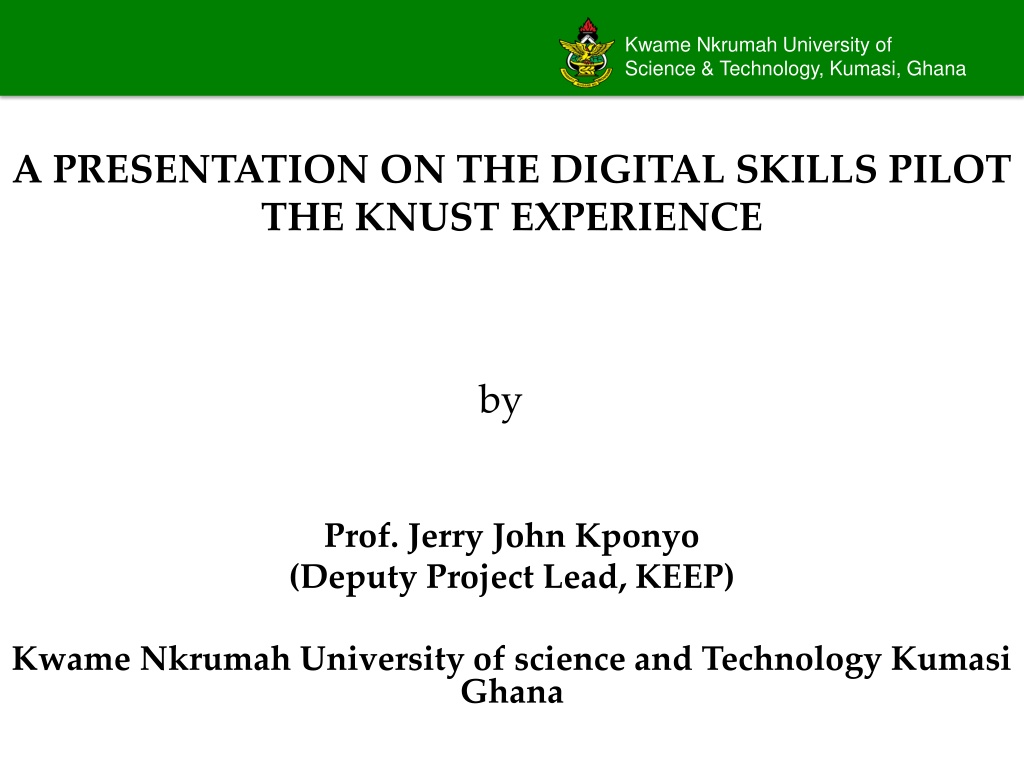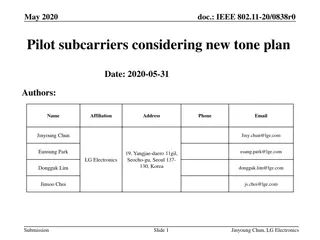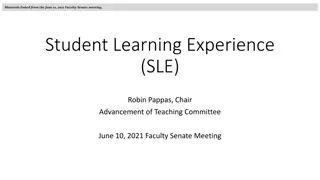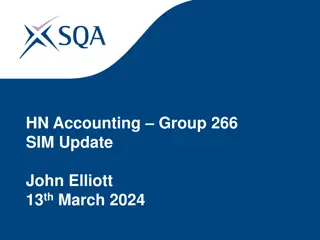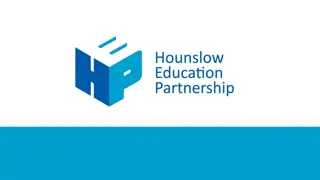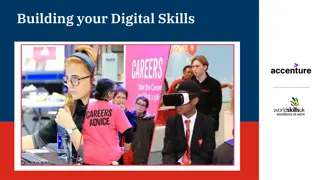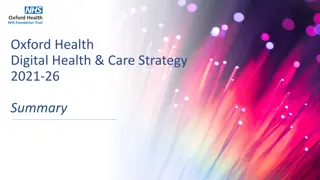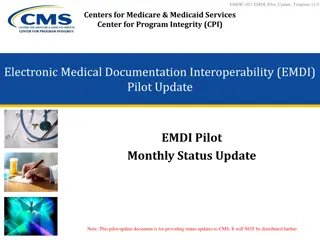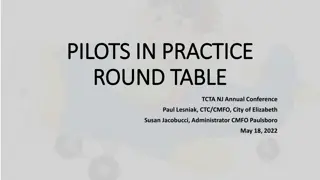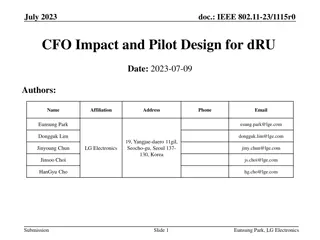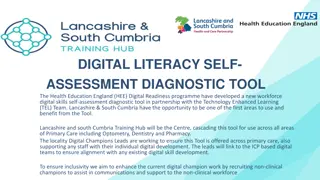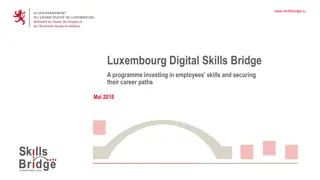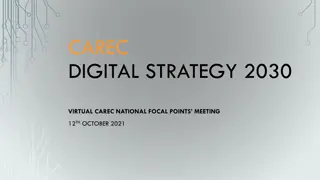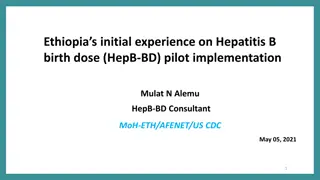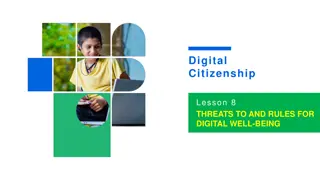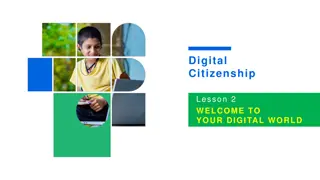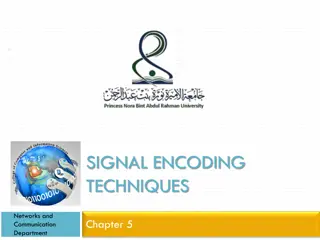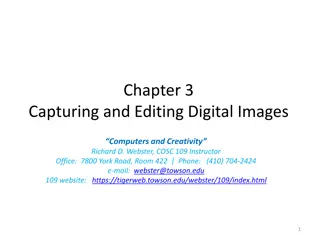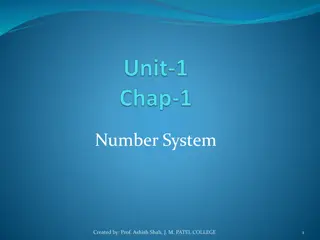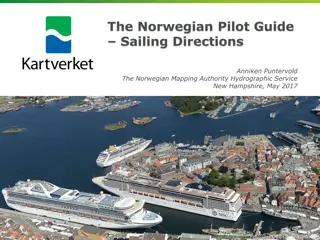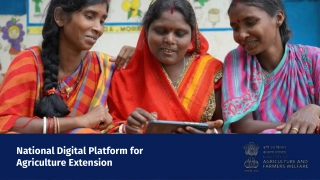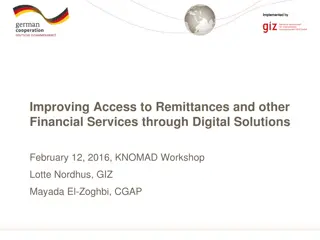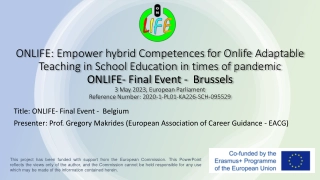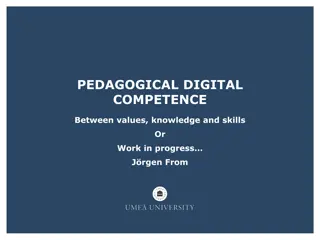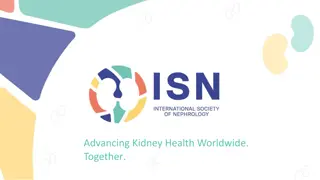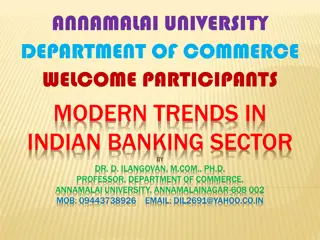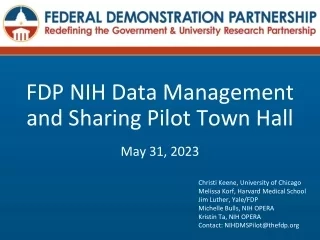The Digital Skills Pilot: KNUST Experience by Prof. Jerry John Kponyo
Presentation on the Digital Skills Pilot at Kwame Nkrumah University of Science & Technology, Ghana, led by Prof. Jerry John Kponyo. The pilot involved third-year Computer Engineering students, offering online courses, micro-credentials, and addressing challenges like internet connectivity.
Download Presentation

Please find below an Image/Link to download the presentation.
The content on the website is provided AS IS for your information and personal use only. It may not be sold, licensed, or shared on other websites without obtaining consent from the author. Download presentation by click this link. If you encounter any issues during the download, it is possible that the publisher has removed the file from their server.
E N D
Presentation Transcript
Kwame Nkrumah University of Science & Technology, Kumasi, Ghana A PRESENTATION ON THE DIGITAL SKILLS PILOT THE KNUST EXPERIENCE by Prof. Jerry John Kponyo (Deputy Project Lead, KEEP) Kwame Nkrumah University of science and Technology Kumasi Ghana
Kwame Nkrumah University of Science & Technology, Kumasi, Ghana
Kwame Nkrumah University of Science & Technology, Kumasi, Ghana 1951 Establishment Location: Kumasi, the Capital City of the Ashanti Region of Ghana 80,606 Students 06 Colleges 1961 06 Students Halls 1,460 Full Time Teaching Staff Fully-fledged University KNUST at a glance !
KNUSTs Participation The College of Engineering, KNUST where KEEP is situated was selected for this pilot. Third Year Computer Engineering students in the Faculty of Electrical and Computer Engineering were selected for this pilot. The pilot was coordinated by KEEP on the KNUST side and in partnership with the World Bank. www.knust.edu.gh www.knust.edu.gh
The Approach Pre-pilot workshops were organised; face-to-face before covid and online during covid, to introduce students to the pilot and to encourage them to commit to the tasks. Two cohorts of third years the first numbering 60 students and the second numbering 30 students participated fully in the pilot. 120 students also participated in the recruitment dashboard but only 68 have completed their online profile. It offered the rare opportunity for students to identify the skills they lacked in pursuing a career in the digital space and access to free online courses from IBM and FutureLearn to fill those gaps. Opportunity for students to obtain verified micro-credentials for the skills they possessed from both the online courses and traditional courses at KNUST, which will be useful in their job recruitment. www.knust.edu.gh www.knust.edu.gh
Observations and Challenges The students needed some education before committing fully to the pilot. The pre-pilot engagement was very helpful. The students had to take the free courses online and internet connectivity and cost of data was a major challenge to many. The digital skills gap assessment pilot was designed for both students and faculty but most faculty didn t show much interest. Acquiring the transcripts for the traditional courses required the involvement of the University leadership. www.knust.edu.gh www.knust.edu.gh
Next Steps Beyond the Pilot The opportunity for students to self-learn and obtain verified micro- credentials (including courses from their transcripts) which are public for all recruiters to use is transformational and must be made available to all students . In building digital skills capacity to drive the fourth industrial revolution, all ACEs, irrespective of their thematic focus area must open this up to their students. In tandem with the digital skills pilot, we must initiate steps towards building capacity in entrepreneurship and innovation which are equally relevant to the continent. www.knust.edu.gh www.knust.edu.gh
Thank You! www.knust.edu.gh www.knust.edu.gh
